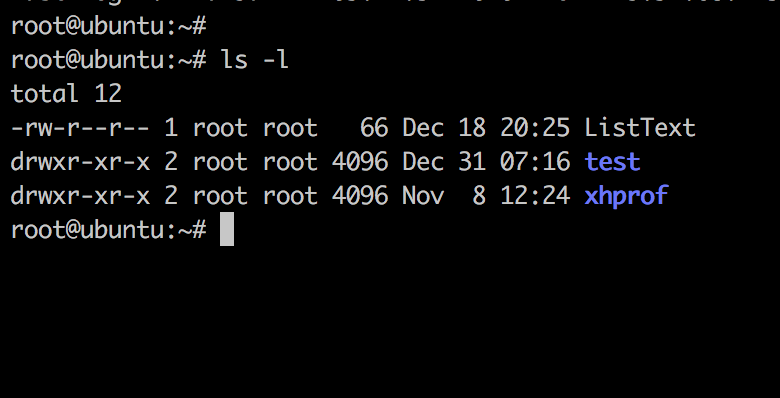DRM-Free "content": Amazon mp3's, itunes mp3's, gog.com, webcasts, podcasts, humble indie bundle, etc. etc. DRM is not needed for successful business, just as closed source is not needed (or even a good idea) for security.
Announcement
Collapse
No announcement yet.
Ubuntu To Investigate Digital Rights Management
Collapse
X
-
Like I said, at this point Canonical wants to make money one way or another. Some of us might think that spyware, Mir and DRM are the worst things that could happen to a popular Linux distro but they're wrong. What we see here is only the beginning of the end for Ubuntu. It's gonna stink a lot more before it decomposes.
Comment
-
The open nature of many codebases is the reason it is so secure. A million eyes are better than a dozen in finding exploits. Linux also has much more sophisticated and well designed security models.Originally posted by Pawlerson View PostWhy not? Windows is closed and it's probably the most insecure system on the planet. In contrary, Open Source systems are the most secure. EDIT: or perhaps, you meant security in the mean of to not pirate games or services?
Hiding the implementation just means someone reverse engineers it in a black box, finds a hole, and takes rampant advantage of it. With open source, these bugs come out before release, and if they arise they can be patched day of due to the negligible bureaucratic overhead. Computers can be inherently secure through hardware like entropy generators, it is just about taking advantage of inherent security in software form.
Comment
-
You are arguing about the business practices of Trolltech (and now Digia), which is possible due to the multi-licensing of Qt. The original Qt itself, does NOT contain DRM, the modified proprietary versions might contain DRM, but you aren't using those versions, are you?Originally posted by funkSTAR View PostLoL. You are in total denial. Qt is used for DRM on set top boxes. Deal with it.
 Discretix CBD Oil — Modern technology has changed many aspects of our lives, with computers and devices of all kinds becoming far more integral to our lives
Discretix CBD Oil — Modern technology has changed many aspects of our lives, with computers and devices of all kinds becoming far more integral to our lives
 The chmod (change mode) command in Linux is used to change the access mode of a file, based on the type of user accessing the file and the type of permission
The chmod (change mode) command in Linux is used to change the access mode of a file, based on the type of user accessing the file and the type of permission
Anyone claiming that Qt is not heavily invovled in the fine art of freedom fucking DRM is in TOTAL DENIAL and need medical attention ASAP.
When you install Qt on your Linux distro of choice, which one are you installing? the GPL or the proprietary modified ones?
By the way, Qt will always be FOSS thanks to the KDE foundation.
 The KDE Free Qt Foundation is an organization with the purpose of securing the availability of the Qt toolkit
The KDE Free Qt Foundation is an organization with the purpose of securing the availability of the Qt toolkit
You are simply spreading FUD on the desktop space.The Foundation has a license agreement with Nokia. This agreement ensures that the Qt will continue to be available under both the LGPL 2.1 and the GPL 3. Should Nokia discontinue the development of the Qt Free Edition under these licenses, then the Foundation has the right to release Qt under a BSD-style license or under other open source licenses. The agreement stays valid in case of a buy-out, a merger or bankruptcy.Last edited by j2723; 07 March 2013, 01:48 AM.
Comment
-
THANK YOU for admitting the FACT that DRM is part of Qt bu$ine$$ model. This DRM shit pulled from Qts ass is also partly to blame for KDEs reluctance to join a cross-DE quest for a working multimedia stack. Being under control by the Puppet Master called Qt will get you down the alley of "compability" to several stacks(Including Qts first priority DRM-infested, patented shit). That is the most sad thing learned from DRM. It fucked free software not by it adoption, but by its existence. Qts DRM shit is like a 2006 fart that keeps smelling. And even today KDE is confused because Qt s a ongoing DRM disaster.Originally posted by j2723 View PostYou are arguing about the business practices of Trolltech (and now Digia), which is possible due to the multi-licensing of Qt. The original Qt itself, does NOT contain DRM, the modified proprietary versions might contain DRM, but you aren't using those versions, are you?
When you install Qt on your Linux distro of choice, which one are you installing? the GPL or the proprietary modified ones?
NO! Go read your own link. KDE is provided with powers to put Qt Free under a more permissive license. Which is so permissive it wont be FOSS anymore.By the way, Qt will always be FOSS thanks to the KDE foundation.
http://www.kde.org/community/whatisk...foundation.php
Comment
-
I don't like insulting people but - we don't care about public opinion, idiot. The public's opinion of whether or not running Linux is useful, productive or troublesome - doesn't matter. The majority's opinion doesn't matter here. We run GNU/Linux systems because we want to. We use free and open source software because we want to. Because we trust it more than closed source software. So we can tinker with it. Experiment away. To me there's so much freedom to experiment and learn just like I used to do when I was young - opening up radios or toys to see how they worked. Any computer science student or indeed any scientist can see the value of open source software - we can learn so much and we are free to share what we learn and create. We don't have to use restrictive licenses. If all we had were closed source systems like Windows or MacOSX or countless other ones, then computer science would not be able to progress the way it has so far. It's because people had the freedom to experiment with their systems the way they wanted to - without that kind of freedom none of the current "tech giants" would have existed.Originally posted by BO$$ View PostYes the choices are OSX Windows and a distant third Ubuntu. The rest don't exist in public's opinion (your opinion doesn't matter you do not represent the majority get used to it). Content providers aren't the evil enemies. They choose to support some systems and not others. Just like Valve chose Ubuntu 12.04 for now. It's just a matter of resources. And they will support the most popular first. So Ubuntu does want to improve it's marketshare so they get on content provider's radar so they can continue to improve the market share and so on and so forth. You can choose Slackware if you like or even something even more obscure, but don't hope that you will get content there. You can probably realize why it's better to have early access than wait 10 years until you get that content on your obscure platform.
I am not saying that Ubuntu should become closed source, just that it should provide some ways for some content providers to obfuscate how they do their thing. Just like the closed drivers we have now. Not a perfect solution I know but it doesn't matter what I want, but what they want since they have more power and Ubuntu is trying to enter their graces. If they think that security through obscurity works then so be it. We're not the ones to tell them how things get done.
Also, there's no such thing as content providers supporting systems - that's bullshit. All they provide is content - video and audio files encoded in certain formats. And VLC, ffmpeg can play a large majority of those formats.
Comment
-
i wouldn't go so far like you but actually the biggest success in it world had this success DUE to illegal copies: Microsoft Windows!Originally posted by curaga View Post@BO$$
Their viewpoint is rather flawed. DRM hurts customers, and piracy equals free advertising.
I am a content producer myself, and have in the past uploaded my own products on TPB. Embrace it, instead of fighting it, you will only lose customers by adding DRM.
And they silently allowed it. they started to close this down the first time with windows XP.
p.s. there are many many other examples btw.
Comment
-
I should dig out my favorite quote again...Originally posted by a user View Posti wouldn't go so far like you but actually the biggest success in it world had this success DUE to illegal copies: Microsoft Windows!
And they silently allowed it. they started to close this down the first time with windows XP.
p.s. there are many many other examples btw.
"It's easier for our software to compete with Linux when there's piracy than when there's not." -Bill Gates, Fortune Magazine, July 17 2007
Comment


Comment